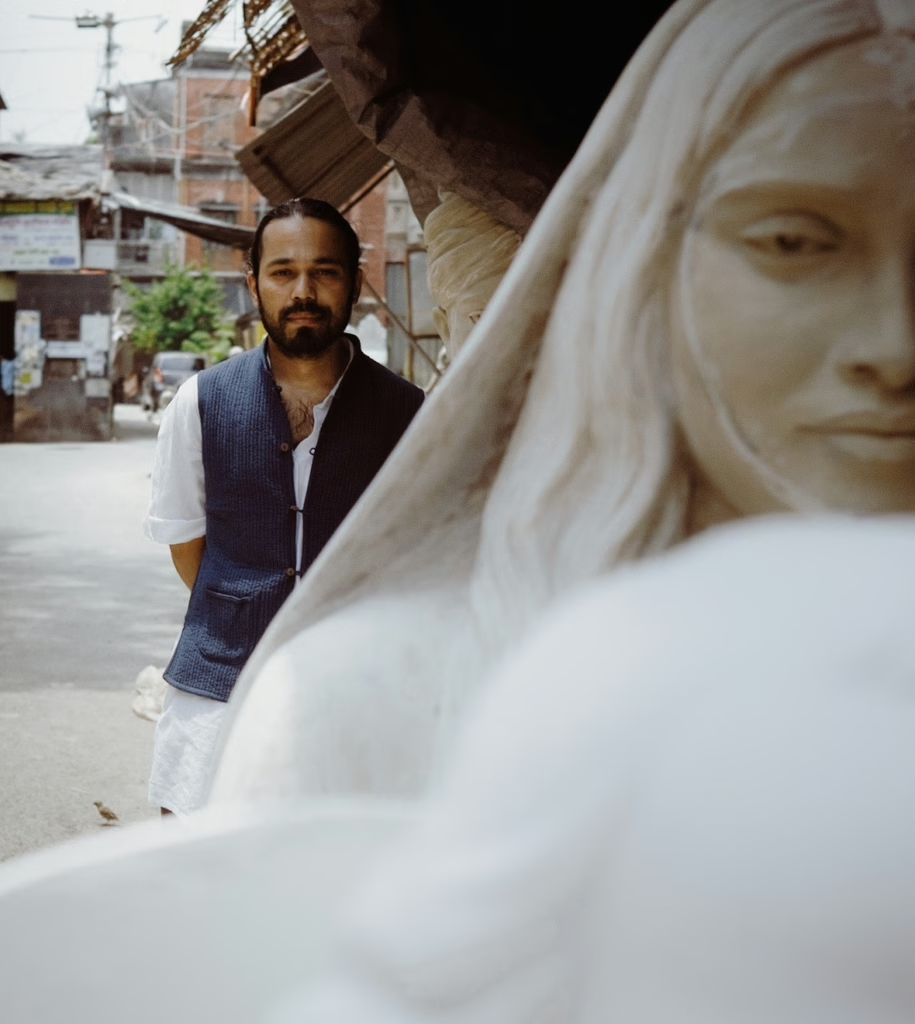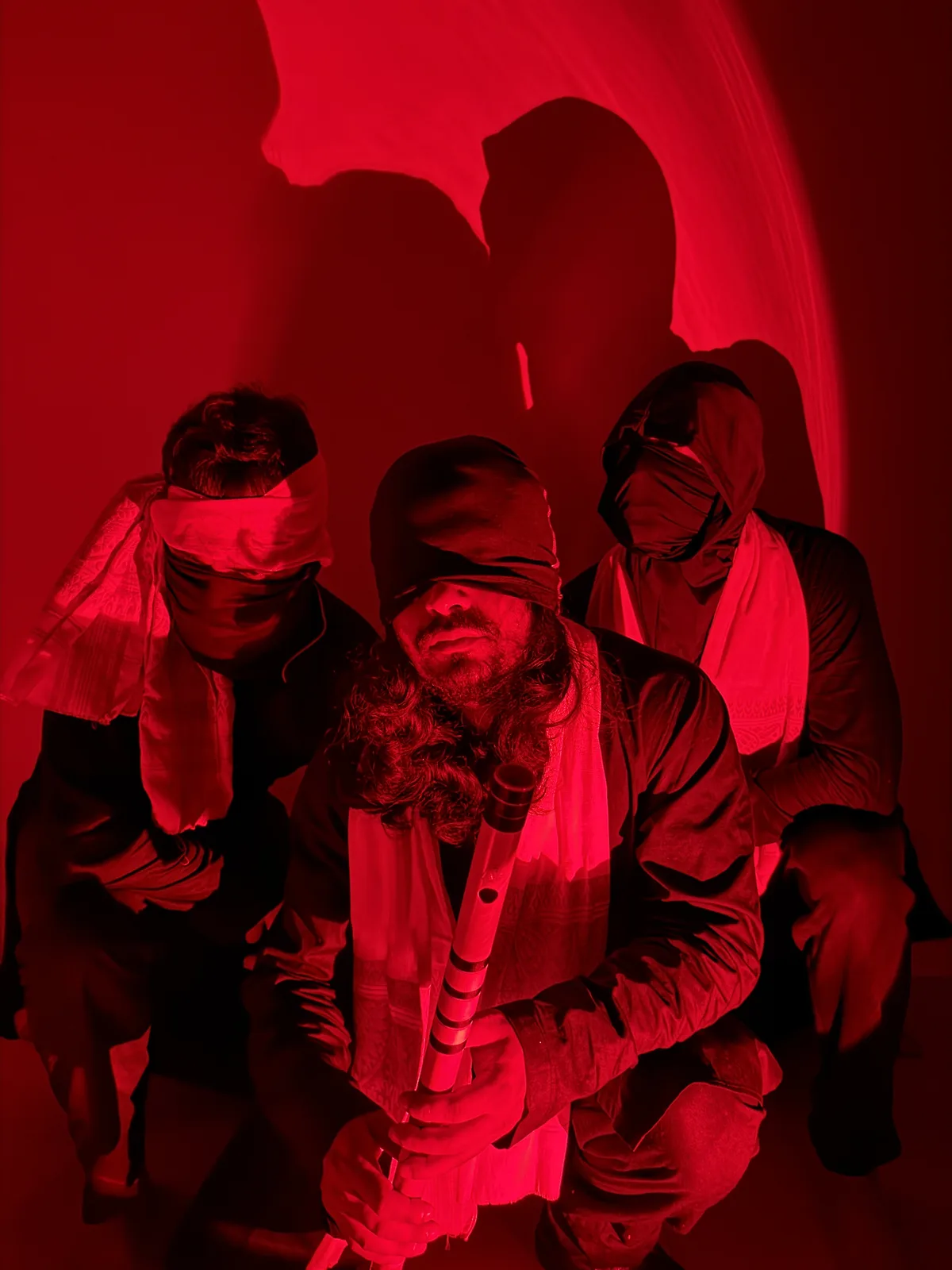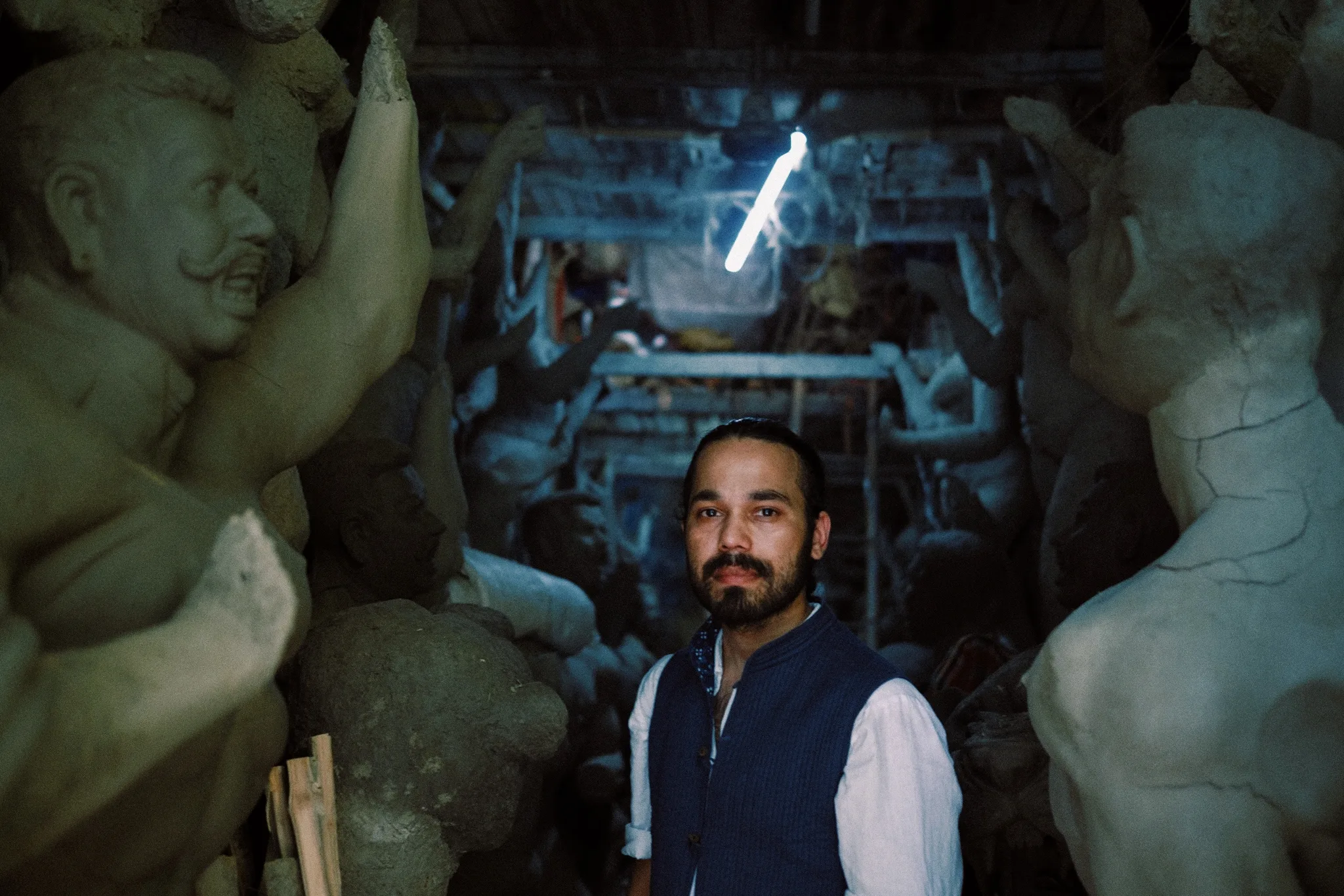Discussing his new, 10-track acoustic-heavy album ‘Guzra Hua Kal,’ Abhishek Gaur states, “As the title suggests, Guzra Hua Kal is a reflection of my past – a collection of thoughts, emotions, and experiences from the last few years, captured across 10 songs. It holds fragments of reality and bits of imagination. It talks about the kind of love I’ve come to understand, the anger and resentment I’ve carried, the foolish mistakes I’ve made, and the small traces of wisdom I’ve gained along the way. It’s built from scattered memories and long hours of solitude. The journey of this album began with a sense of dissatisfaction as a musician. That feeling eventually led me to part ways with my band and start over, alone.” Gaur’s new record is pretty direct, because on the very first listen – I feel it all translate, through sound and speech alike.

The framework of sound is familiar, guitar heavy arrangements, minimal synths, light percussion – the kind of comfortable pre-electropop-derivative indie music that has given us some great hits in the past. However, make no mistake, Gaur is a master of his craft — so all that he makes does not appear safe and formulaic, but instead – textured, weaponized, and intentionally rough around the edges.
He plays with time throughout the record, holding his memories and his idealizations close and mixing them up in a way that is deeply personal, because he lets you have it – the meaning and the emotion and the rhetoric, but not completely – crafting the tracks like water constantly slipping through. This is a 50 minute long record, and Gaur mulls over everything that cuts him open in a mostly cheery delivery. One of my favorites, on this record, is the eponymous track – Guzra Hua Kal, which is heavier, opening into melancholic violin by Tanish Khandal — and the entire arrangement is clever, it seamlessly transitions into the next one, Khaali Yahaan.

While I do enjoy the reliance on the acoustic guitar for the most part, my favorite moments are when the album drops in elements of sonic surprise. The outro of Kya Tumhe Yaad Hai, mixes jazz chords and keys into the mostly indie production, almost like setting up lights in a sufficiently decorated living room – brighter, and more complete now with the arrival of glow. It is also more appealing to the ear when more instruments float in — this is not an indictment of Gaur’s simplicity of approach, rather an appeal to keep the same arrangement but not walk into the labyrinth of predictability.
For one, Gaur is trying to navigate his emotional spectrum while also reclaiming his own artistry – and therefore, the slight ask for more experimentation is not too unanticipated, I believe. The instrumentals are gorgeous, and there is Dil Ka Aashiyan – which is twinkling, and it uses the sheer honest quality of Gaur’s voice to hit a bullseye into his audience’s preferred soundscape, while also being seamlessly intriguing — as he croons, “Dhoondta Fira Kahaan Kahaan/Mil Nahi Mujhe, Tera Kahin Nishaan/ Gira Hun Is Kadar Main/Tootkar Sabse Roothkar, Main Ab Yahaan.”

Guzra Hua Kal, marks the pursuit of Gaur’s self – and serves as an enticing letter of invitation — for you to join him, as he sets out to find reconciliation — of what he has created, what he intends to create, and where he stands, in the midst of all of this coming, going, and the temporality of it all.





























